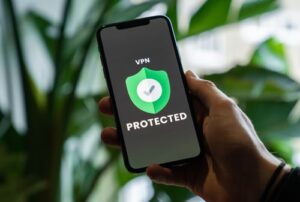
Everyone would prefer to maintain some level of privacy when using the internet, no matter what your reasons are for. Whether you want more privacy from corporations who want to use your data for profit, to hide embarrassing personal search histories from friends and family, or make secretive purchases for birthdays in online stores, there are things that you can do to ensure that your activity is hidden from prying eyes.
You may also want to consider switching internet providers. And to upgrade your existing data cable system, Cat6 cables offer better reliability and for a faster and more reliable internet access. On the other hand, Dallas, TX residents can choose from the local Dallas internet providers by comparing their services. You may also consider getting affordable ATT Bundles from AT&T. For more complex wiring needs, such as connecting multiple devices or systems, you can explore options like multi-conductor cables available at AudioVideoElectric.
Private Browsing
The common sentiment that online tracking is fine if you have nothing to hide is wholly flawed. While you may not be being tracked down by the FBI via cookies, but it’s perfectly reasonable to want to avoid tracking by corporations. Your browser is a hotbed of information that gets distributed to marketers who use your history and data to construct a profile of who you are and what you enjoy. They can then use that information for not-so-nefarious purposes such as targeted adverts. However, there really isn’t much stopping these groups from misusing your data down the line—just because they’re saying they’re not doing it now, doesn’t mean they won’t in the future. Make use of private browsing search engines and incognito modes, when possible, to reduce the amount of data obtained from you.
Keep Your Data to Yourself
While it can be unavoidable to share a password with your partner or those you trust, try to limit who has you passwords. Ideally, nobody should have any of this data. Where possible, instead of giving out a password, log that person in yourself. If you have given passwords out, consider changing them once that person is finished using your account. Avoid using online, shared platforms to store sensitive information too. Dropbox and shared Google drives aren’t the place for your personal information. Keep those important documents safe and secure on your own PC.
Use Multiple Contact Emails
Sometimes there are website you need to input information into, especially your email address, that you just can’t avoid. Instead of stubbornly turning away, create an email address that is designated specifically to catch spam for your primary email address. Avoid using your main, professional account to sign up to anything that could end up directing marketing materials your way. More importantly, try to avoid sharing any of your contact details online in public spaces such as social media as this only increases your risk of both unwanted and unsavoury contact.
Delete Viewing History

It’s not just online privacy that is a concern for people. Sharing accounts with friends and family or letting people have access to devices that are logged into certain websites can present embarrassing situations or risk people seeing personal information such as card details. When it comes to search history, it’s always important to wipe it regularly and that’s not just on your browser. There are so many apps that keep a record of what you view, including Amazon and Netflix. Searching for presents for someone on a shared Amazon account can lead to ruined surprises so clear those searches before anyone else uses that account.
When it comes to Netflix, your viewing and search history will be stored to provide you with recommendations based on what the app believes you’ll enjoy. It’s not too difficult to delete Netflix viewing history and there are plenty of reasons to consider doing so. When sharing an account like this you could find that your recommendations are deviating from what you really want to see due to other users viewing their favourite things on your profile. Wiping that search history can help you refresh your recommendations and also hide any embarrassing viewing history.
Secure Passwords
Nothing is more of a breach of privacy than a hacked account. The damage of a hack will vary based on what account is targeted, but most will contain a level of personal information that you don’t want someone viewing that is morally corrupt enough to break into and snoop through personal accounts. In a worst-case scenario, that account could have payment information saved or even your personal address, leaving you wide open to fraud. Use a complex and secure password and avoid saving those passwords anywhere that people could get access to. Try to avoid sharing those passwords with even close friends and family too. If you find complex passwords to be too hard to remember, consider using a “digital keychain” to safely store and use your passwords.
Encrypted Messaging
For the more security conscious people out there, you’ll likely be aware that there are some messaging platforms that have the potential to be heavily monitored by outside influences, be they official agencies or commercial. Finding a way of preventing snooping conducted by these entities, it’s worth choosing a messaging app with end-to-end encryption in place. Apps like WhatsApp currently use this and even prevents the service provider from seeing the contents of these messages. It’s important to remember that there are still human beings behind online services, and just because you’re using a trusted and official platform, it doesn’t mean that the people behind it aren’t incorruptible. With end-to-end encryption the data of those messages remains encrypted even once it’s sitting inside that company’s servers so you can feel a bit more confident that your information is safe. This is one of the most effective Cybersecurity Solutions individuals and businesses can take advantage of. In addition, business owners may invest in a cyber liability insurance policy to further protect their digital assets in case of a cyber attack. For instance, if you own a cannabis dispensary business, you should consider investing in a Cannabis cyber liability policy.
Delete Old Accounts
The longer you leave a dormant account for, especially on websites that are no longer operational or maintained, the higher chance you have of those private details associated with that account being compromised. While it may be hard to remember every account you have had in the past, try to find as many as you can using old emails that may have come through for activation purposes for example. Once you’ve gone through the process of deleting those accounts, consider making a list of every site you sign up to from now onwards, so that the process of removing old accounts will be much easier in the future.






